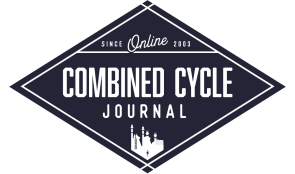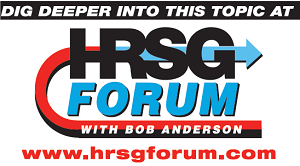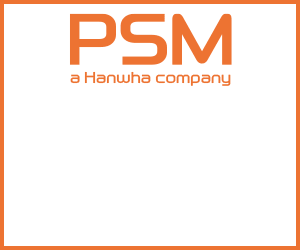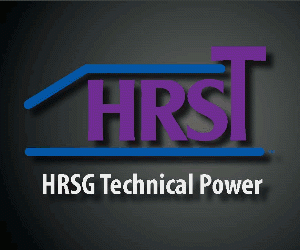Independent users groups serving owner/operators at cogeneration and simple- and combined-cycle plants powered by gas turbines are an invaluable resource for station personnel. Almost all have online forums available 24/7/365 to help answer technical questions quickly and get you moving in the right direction with possible solutions. Most colleagues offering their unbiased assistance have deep O&M experience and understand your challenges; plus, there’s no charge for their help.
Power Users, the umbrella organization providing administrative support for the 7F, Combined Cycle, Generator, Steam Turbine, and Power Plant Controls Users Groups operates online forums for each of those organizations. Plus it collaborates with the HRSG Forum with Bob Anderson on an online discussion forum focused on heat-recovery steam generators. Anderson is the discussion moderator. Register today to participate at www.powerusers.org.
Recently, a user asked for advice through the forum on an acoustic leak detection system described in a brochure. Just so happens that Anderson has first-hand experience with instrumentation for detecting boiler leaks. By way of background, he managed both conventional steam and combined-cycle plants for Florida Power Corp, was manager of combined-cycle services for Progress Energy, and is recognized worldwide as an authority on boiler and HRSG design and O&M.
Anderson responded thusly, “Week before last I was in England and met with a company that sells a monitoring system like the one described in the brochure you forwarded. They have many systems on conventional boilers, but have never attempted to install one on an HRSG. The brochure you provided references HRSGs at the top, but all of the photos and information relates to conventional boilers. What specifically has this company done on HRSGs?
“I think online leak detection is an important tool for HRSG operators. But I’d be wary of buying a system today from anyone unless they can demonstrate a successful track record in multiple HRSG applications.”
Anderson then dug into the history of boiler leak detection to provide valuable perspective and to suggest a direction for the user to pursue. He said acoustic online monitoring for leaks in conventional boilers has been used successfully since the mid-1980s. It was first developed to monitor P11 superheater headers for early signs of leakage associated with ligament cracking, users having discovered that the creep life of these headers was not meeting expectations.
Installation of a leak detection system, he continued, permitted a boiler with known ligament cracking to continue operating. When such damage was first discovered, it was not known how long ligament cracks that joined up, and/or went through-wall, would leak before breaking. Once fracture-mechanics techniques were improved and it was determined that ligament cracks were unlikely to fail catastrophically, leak detection systems became optional.
While several vendors made leak detection systems for conventional boilers, no one attempted to deploy one on an HRSG until a few years ago. These systems depend on filtering out all background noise except for the sound of the leak. Since the HRSG gas path is much noisier than that in a conventional boiler, no vendor attempted to spend the development money to see if their system could be made to work on an HRSG.
A few years ago, Anderson went on, EPRI contracted a company called Triple 5 to develop a leak detection system for HRSGs—and it worked. This system is now commercially available to anyone. Triple 5 was bought out by Mistras Group Inc a few years ago, but it still sells and monitors these systems. About two-dozen of the Triple 5 acoustic monitors have been installed on HRSGs to date.
The Mistras (Triple 5) system uses wave guides (rods) clamped to header/pipes and welded to casing. Hardwired accelerometers are attached to the wave guides. The monitoring system is remotely monitored by Triple 5 which notifies the plant when/if leaks occur. Very small leaks are detectable.
As the leak grows it is often possible to determine how many starts/stops remain before the leak goes critical. This is of great use in getting the unit to a less expensive time to repair the leak.
Interestingly, Nick Grigas of Triple 5 will be presenting on acoustic leak detection at the upcoming HRSG Forum with Bob Anderson, in the Hilton Orlando, July 22-25. Recent developments he will discuss include deployment of a wireless (Hart) system to facilitate installation. You’ll be able to visit with Grigas during the exhibition to dig deeper into the details of leak detection at Booth 104.







